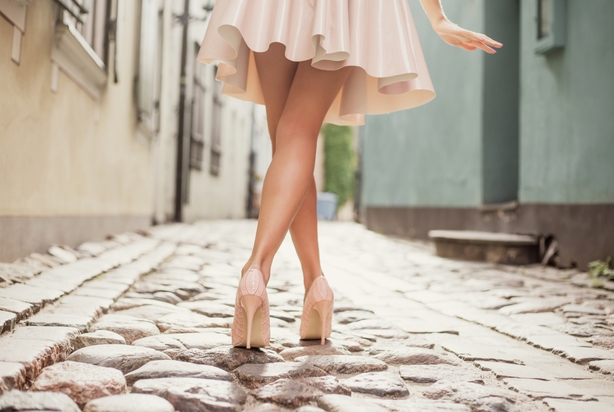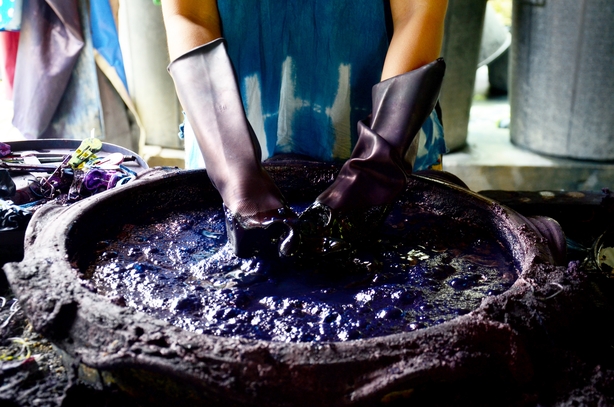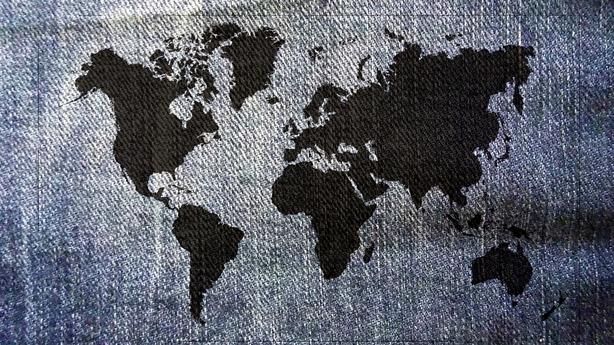Fashion creates various opportunities for us to express ourselves through clothing. Who are you? Who do you want to be? How would you like the world to see you?
There are endless phrases about fashion such as:
"Clothes make the man" or "Dress to impress!"
But what do these phrases have in common? They are quite self-centred. And there is nothing wrong with that because fashion is all about individuality. However, it is a shame that so many of us don't think about where our clothes came from or under what conditions they are produced.
Marilyn Monroe, one of the biggest fashion icons of all time, said:
"Give a girl the right shoes and she can conquer the world."

But who made those shoes, that allow us to walk around so confidently?
There are a number of organisations that work tirelessly to raise awareness surrounding the conditions under which our clothes are made. For instance, two weeks ago Fashion Revolution came to Ireland to remind us of where our clothes come from.
Fashion Revolution is a global movement campaigning for a fairer, safer, cleaner fashion industry. Its goal is to inspire action when it comes to the troublesome issues that the fashion industry is causing. The organisers are on a mission to celebrate fashion as a positive influence.
In remembrance of the Rana Plaza factory collapse in Savar, Bangladesh, which cost 1,138 people their lives and injured many more, a week-long series of events were hosted across Ireland. Yvonne O'Callaghan, SIPTU Global Solidarity Committee said:
"Four years ago 1138 workers perished in the worst tragedy in the history of the world's garment industry. They were making the clothes that we buy every day in Ireland,"
She went on to explain: "SIPTU is supporting Fashion Revolution Week as it not only commemorates those lives lost, it also promotes a conversation around fast fashion and supply chain transparency."
"Everybody should get informed because we all have the power to change the industry that so desperately needs to be revolutionised."

The working conditions for garment workers are often incredibly bad in the Eastern world. The collapse of the factory in 2013 proves that buildings are often unsafe, breaks are unbelievably short or non-existent and payment comes to just €49.56 per month, which is less than a basic living wage. Not to mention the numerous health risks that garment workers face on a daily basis.
Almost 80% of the workforce in this industry are young women who are living in poverty.
It's time for change
Every single person can make a decisive contribution towards a future in which garment workers are treated like they deserve to be treated. We need to stop forced overtime and inhumane working hours and start to create safe and healthy working conditions.
No woman should be forced to sign a contract, in which she agrees to remain unmarried and without children. No garment worker should have to put up with verbal abuse and penalties and live in constant fear of dismissal.
We need to prioritise employees everywhere, whether it's in the Western World or in developing countries, so that we can all enjoy at least a minimum of appropriate working rights set by the law.
Rosie O’Reilly of Re-Dress, one of the campaign’s organisers, says:
"The global fashion industry is worth well over two trillion dollars, an industry of such value should not be able to profit at the cost of people and planet."
"Its time for change and time to ask 'who made our clothes?'"

How to join the movement
Fashion lovers are called on to raise awareness and start the conversation around the country in asking leading fashion brands #whomademyclothes across social media.
On a daily basis, we should just be a little more considerate with where we buy our clothes and support those companies, who treat their employees fairly and contribute to a fairer, safer, cleaner fashion industry.


